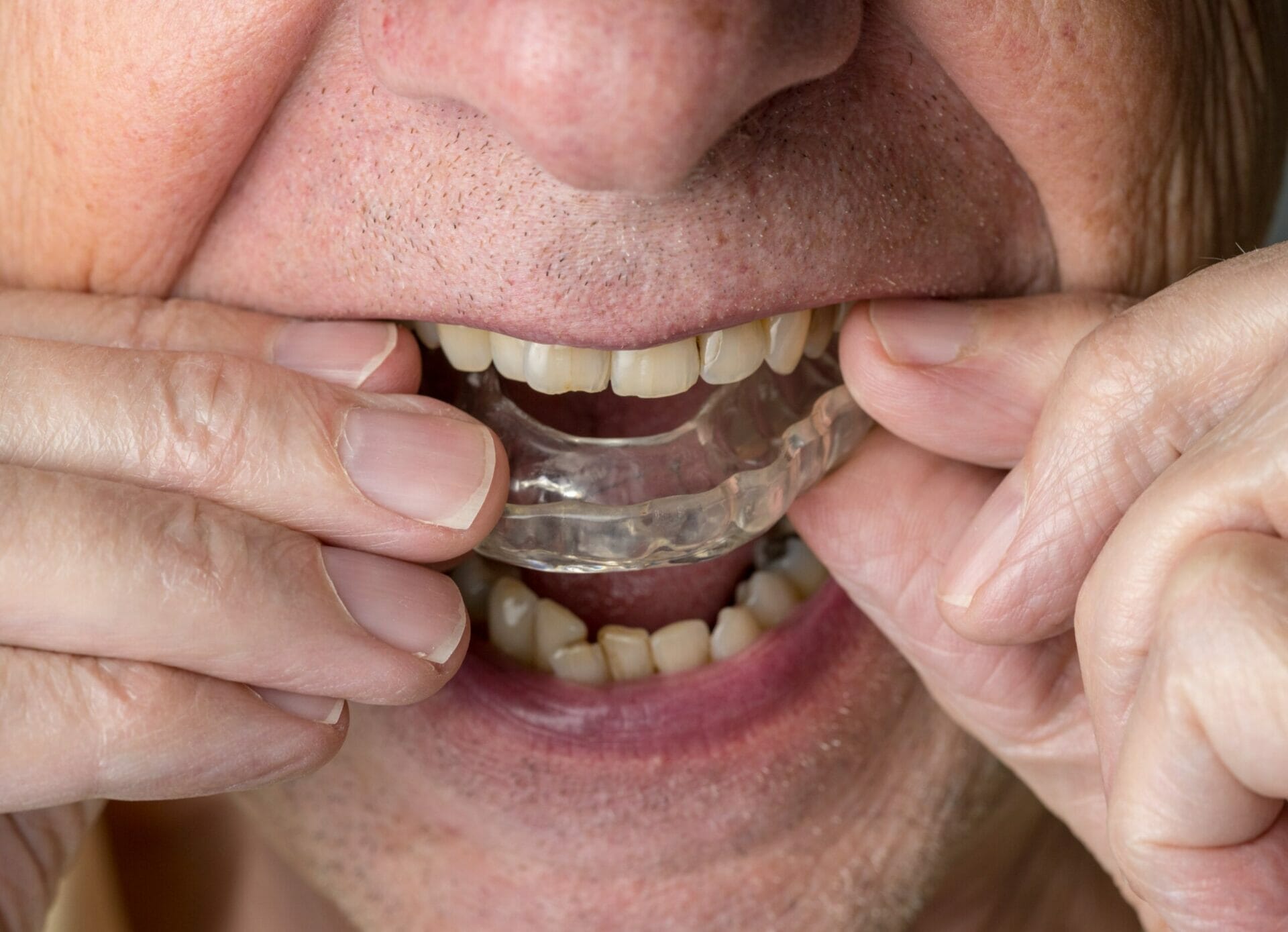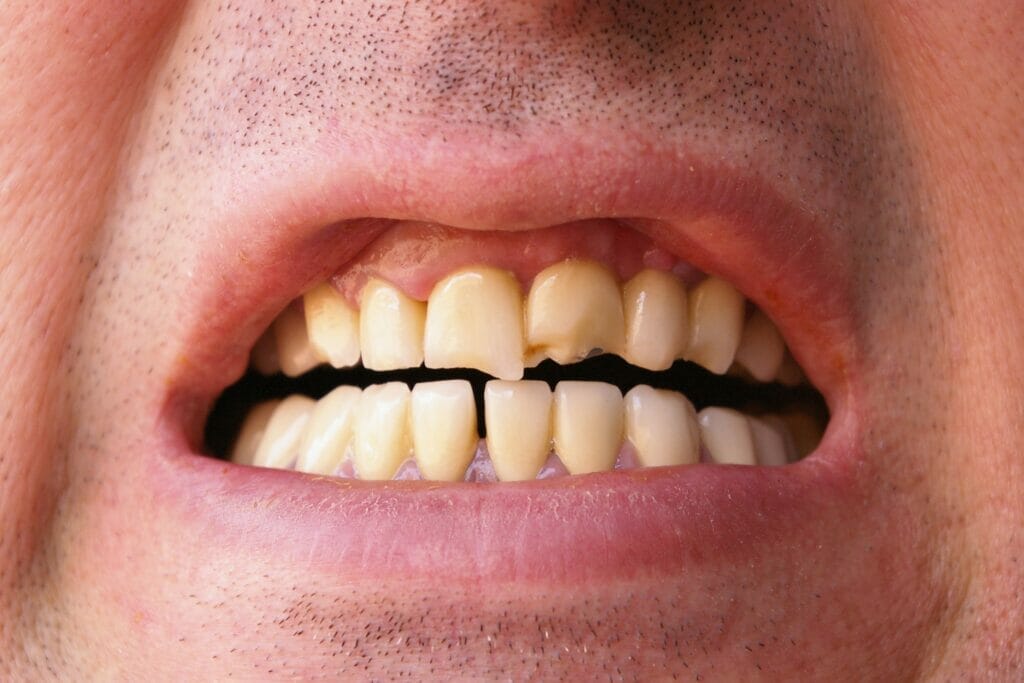
Night Guards are an acrylic padding that fit over your teeth while you sleep. These devices help patients protect oral structures during nighttime tooth grinding. Patients who grind their teeth experience deterioration of teeth, gums and jaw over time if they do not wear a night guard. Below is a list of specific symptoms and conditions that develop as a result of tooth grinding.


A night guard is a horseshoe-shaped acrylic pad that fits on your teeth. It can fit on the top teeth. It can fit on the bottom teeth. Both types work equally well. Lower night guards are smaller and they don't encroach on the roof of mouth like the upper ones do. People also find it easier to speak with a lower night guard in place. Because of this, most patients find it easier to acclimate to a lower night guard.
Your night guard does 2 main things:
Your Dentist in Kitchener can make a custom-fit night guard for you for $300 - $400. They will take dental impressions of your teeth and then work with a dental laboratory to design and make the appliance that will work best for you.
Night Guards usually take 10 - 14 days to make after your Family Dentist takes impressions.
These appliances may be covered by your dental insurance. Ask your Kitchener Dentist to send a pre-determination for costs to your insurance provider so you'll know in advance what amount, if any, you'll need to pay for your new Night Guard.
No, they're not. Generally, a Night Guard for your teeth is made of a flexible acrylic. However, you can make a night guard harder or softer by varying the type of acrylic from which it's made. Over time, people may develop preferences for softer or harder guards and your Kitchener-Waterloo Dentist can cater to your preference with their night guard design.
A night guard will fit over either your upper or lower arch of teeth. The appliance can limit tooth movement or shifting, meaning that it can act like a retainer. However, it will not be able to prevent shifting of opposing teeth in any way. For example, an upper arch night guard can limit or minimize shifting of upper teeth but will not prevent or limit shifting of the opposing lower teeth.
Some people wear a removable retainer after straightening their teeth with Dental Braces or Invisalign. If they eventually need a night guard, they discontinue wearing the removable retainer as it will not fit under the night guard.
There is no evidence of this. Theoretically, if the night guard is not a proper fit for your arch of teeth and you force it into place, it can cause active movement the way an Invisalign aligner would. My best recommendation would be to seek the advice of your Kitchener Dentist if your new Night Guard seems to be changing the feel of your bite. That could be an indication that the appliance does not fit correctly and requires and adjustment.
You can help to minimize forces when putting your Night Guard in place by first warming it with water for 30 seconds. You definitely want to avoid hot or boiling water as it will denature the acrylic and your night guard will lose its form.
By protecting your tooth enamel, your night guard minimizes tooth wear and chipping over time. By eliminating damaging lateral forces, your night guard relieves jaw pain while minimizing destruction of jaw bone and gum tissue.
If you have any questions about tooth grinding or having a night guard made for you, call us at (519) 576-8160 or request a consult with Dr. Kyle Hornby here.
This article is intended to promote understanding of and knowledge about general oral health topics. It is not intended to be a substitute for professional advice, diagnosis or treatment. Always seek the advice of your Kitchener Dentist or other qualified healthcare provider with any questions you may have regarding a dental condition or treatment.
Services
Routine Dentistry & Tooth Repair
Oral Surgery & Tooth Removal
Prosthetic Dentistry & Tooth Replacement
Protective/Preventive Services
Teeth Whitening
Schedule an Appointment Now
